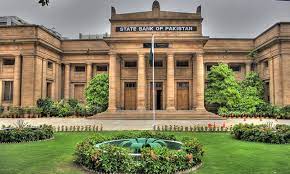The federal government of Pakistan has intensified efforts to adopt virtual assets and cryptocurrencies. On Tuesday, a high-level meeting was held in Islamabad with top representatives from the State Bank of Pakistan (SBP), exchange companies, and the gem and jewellery sector. The aim was to discuss Pakistan’s evolving regulatory framework for virtual assets under the newly enacted Virtual Assets Act, 2025.
The meeting was chaired by SBP Governor Jameel Ahmad and attended by Bilal bin Saqib, Chief Executive Officer of the Pakistan Crypto Council (PCC) and the Special Assistant to the Prime Minister (SAPM) on blockchain and cryptocurrency. His presence highlighted the government’s commitment to modernizing the financial system by embracing virtual currencies in line with global best practices.
The federal government formally approved the Virtual Assets Act, 2025 on July 9, 2025, following endorsements from the Federal Cabinet, Prime Minister, and President of Pakistan. This landmark legislation sets the foundation for regulating and promoting the use of virtual assets across the country.
One of the most significant features of the new law is the establishment of the Pakistan Virtual Asset Regulatory Authority (PVARA). This autonomous body will have the power to license, regulate, and supervise all entities involved in the virtual assets space, including cryptocurrency exchanges and service providers.
The authority is also mandated to enforce regulations that ensure transparency, financial integrity, and compliance with international standards such as those set by the Financial Action Task Force (FATF). The ultimate goal is to prevent illicit financial activities while promoting innovation in the financial sector.
During the meeting, Bilal bin Saqib gave a comprehensive presentation outlining the vision and objectives behind the legalization of cryptocurrency in Pakistan. He pointed out that a substantial number of Pakistanis are already actively investing in digital assets, especially through overseas platforms. This trend, he emphasized, demonstrates the growing appetite for crypto among the general public.
He urged stakeholders—particularly banks, exchange companies, and jewellery businesses—to support this transformative initiative. “Pakistan is fully prepared to enter the age of digital finance,” Saqib remarked. “The new law is a game-changer and can significantly contribute to economic modernization and financial inclusion.”
Saqib also emphasized that the regulation of virtual assets would open new avenues for foreign investment, encourage tech innovation, and enable secure and transparent financial transactions within the country.
According to industry insiders, during the meeting, banks and exchange companies were informed that they would soon be eligible for licenses to operate in the cryptocurrency sector. This would allow them to facilitate crypto transactions legally and under the oversight of PVARA.
Such licensing would not only bring Pakistan in line with regional peers like the UAE and Singapore, which have adopted crypto-friendly policies, but also reduce the risks associated with unregulated crypto activity. Legalizing this space under strict regulatory supervision is seen as essential to ensuring consumer protection and safeguarding the national economy.
As global central banks examine the viability of Central Bank Digital Currencies (CBDCs), Pakistan is not staying behind. SBP Governor Jameel Ahmad recently revealed at an international conference that the central bank is preparing to launch a pilot project for a digital currency in Pakistan.
According to Governor Ahmad, SBP is currently finalizing legislation to regulate virtual assets, which will operate alongside the Virtual Assets Act. He acknowledged the global shift toward digital currencies and reiterated the bank’s commitment to creating a secure environment for these financial instruments.
Pakistan’s entry into the digital asset space is expected to revamp its financial ecosystem. From enhanced cross-border remittances to the potential use of blockchain in supply chains, the possibilities are vast. Moreover, by licensing entities and promoting transparency, Pakistan can increase its chances of staying off FATF grey lists, which have historically hindered international financial cooperation.
By embracing blockchain and virtual assets, Pakistan positions itself as a forward-thinking nation ready to integrate into the global digital economy. The move also complements broader government efforts toward building a cashless economy, digital governance, and increased fintech adoption.
The government’s proactive steps, particularly through the Virtual Assets Act, 2025, signal a transformative shift in Pakistan’s financial policy. With strong backing from SBP and support from stakeholders across banking and commerce, Pakistan is laying the groundwork for a regulated, transparent, and inclusive crypto economy.
The success of this initiative will depend on continuous dialogue among regulators, businesses, and the tech community. However, the foundation has clearly been laid for Pakistan to emerge as a significant player in the global virtual asset landscape.




